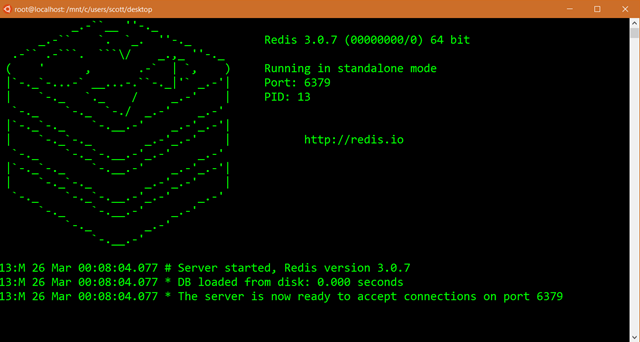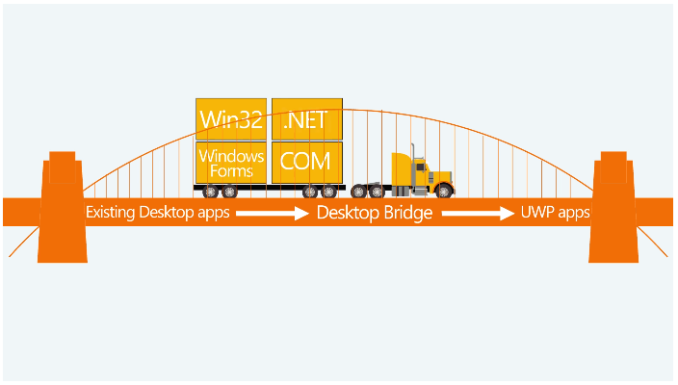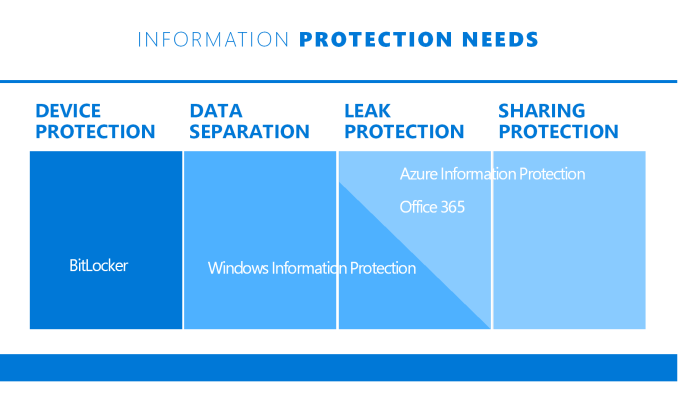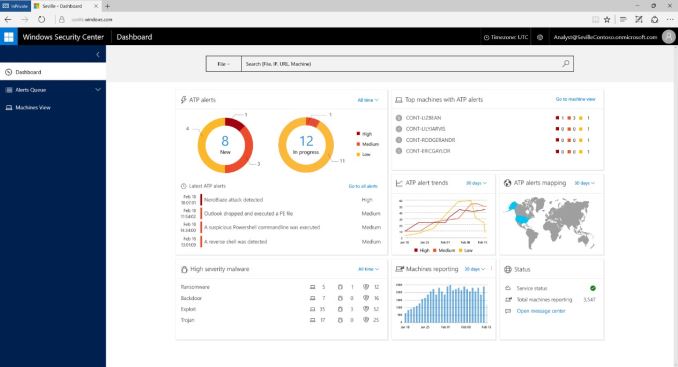Windows 10 Anniversary Update: The Road To Redstone
by Brett Howse on August 2, 2016 8:00 AM EST- Posted in
- Operating Systems
- Microsoft
- Windows 10
Developer and Enterprise Features
Bash shell
At their Build developer conference, Microsoft announced that the Bash shell would be available in Windows 10 with the Anniversary Update, and they have delivered. Bash has been available in the Insider Program for quite a while, so it’s been well tested already. For those wondering why Microsoft would go to the trouble of adding another shell, the goal is to make Windows 10 more friendly for web developers who often have toolchains in Bash.
Image Source: hanselman.com
Microsoft partnered with Canonical to provide user-mode binaries, so most of the commands which work in Ubuntu will work in Windows 10 as well. The Bash shell is not running Linux in a virtual machine behind the scenes either. This is Ubuntu binaries running on Windows 10.
For those that wanted to leverage open source toolkits but could not do it on Windows before, this should be a nice addition to Windows.
Centennial Apps
Project Centennial is Microsoft’s solution for existing Win32 apps being moved forward to the new Universal Windows App (UWP) platform. With the Anniversary Update, Microsoft is bringing official support for Centennial Apps on Windows 10, where as prior to this it was all part of the testing phase.
Once a Win32 or .NET app has been converted to UWP, it will have the ability to do push notifications and have a Live Tile, just like all UWP apps. The install process is much cleaner, and uninstalling ensures that all traces of the app are gone. A converted Win32 app can be transitioned to the new XAML layout as well, which would allow for scaling of the UI much easier than any sort of DPI method.
Converted apps can also be put in the store, and updated through the store. For those that prefer to offer the app in a more traditional download and install way, the converter creates an AppX package which can be loaded onto any Windows 10 PC.
The app will have a virtualized file system and registry, and it won’t work for apps that have to run as administrator, but there are certainly some upsides to having Win32 apps converted to UWP. We’ll have to see how this goes over time, since it’s a brand new feature. Certainly apps that are no longer developed will never move to this model, it’s a smart way to at least offer the UWP platform to traditional Win32 developers.
Enterprise Features
Microsoft can’t leave out the Enterprise, since that’s a huge part of their business. The Anniversary Update brings some updates here too. Things like Windows Hello which are also usable by consumers will of course be available, but there are a couple of features targeted specifically towards the enterprise.
The first is one that we’ve heard about for about as long as Windows 10 has been around: Windows Information Protection. This feature was previously known as Enterprise Data Protection, and it is a mechanism to prevent data leaks by employees, either wittingly or unwittingly. Files can be designated as Business files based on where they are located, or where they came from, and end-users won’t be able to copy those files or their contents without switching it to a personal file, and whether or not they can do that is controlled by policy through Mobile Device Management or System Center Configuration Manager.
We’ve discussed this in the past, but there’s a great TechNet article now that the feature is being made available with this update.
The other big enterprise feature is Windows Defender Advanced Threat Protection, and yes the name is a mouthful. WDATP will help administrators detect, investigate, and respond to attacks to their infrastructure. It combines a client built-in to Windows 10 along with cloud infrastructure to provide tools and dashboards to see what’s going on now, and what’s happened in the past. It should be a powerful tool for IT admins. You can read more at TechNet as well.














194 Comments
View All Comments
Michael Bay - Tuesday, August 2, 2016 - link
Chrome is a bloated hog everywhere. Memory/battery/whatever.secretmanofagent - Tuesday, August 2, 2016 - link
Definitely is for OS X. CPU sometimes goes crazy and have to kill tabs.powerarmour - Tuesday, August 2, 2016 - link
Prove me wrong, or STFU.Michael Bay - Wednesday, August 3, 2016 - link
Countless user experiences prove you wrong every day.But keep hurtin`, please, it`s entertaining to watch.
powerarmour - Wednesday, August 3, 2016 - link
How old are you, 12?Get a Chromebook, see how long the battery lasts.
Chrome is such a bloated hog when it runs fine on 2GB RAM and lasts 10+ hours...
BurntMyBacon - Wednesday, August 3, 2016 - link
Or I could, you know, stick with the devices I have and not spend money I don't need to spend on a device I don't want and simply use a browser that works better for my needs.BurntMyBacon - Wednesday, August 3, 2016 - link
@powerarmour: "Prove me wrong, or STFU."You realize he could say the same to you. While I generally don't agree with such all inclusive statements as "Chrome is a bloated hog everywhere", there are more than a few places on the internet that suggest this is the case in a fairly extensive number of popular ecosystems.
My personal experience is that chrome has a detrimental effect on the battery life of several generations of Asus gaming laptops (Win7 / Win8 / Win10), a 2-in-1 (Win10), two android tablets (Asus - Kitkat / nVidia - Marshmallow), an android phone (Samsung - Lollipop), and a Macbook Pro (Yosemite / El Capitan). I will take your word that it is less of an issue in a chromebook. However, I have no desire to purchase one and I have no friends from whom I can borrow one to try it out.
nikon133 - Tuesday, August 2, 2016 - link
I'd say that's purely a Google thing. Considering that Windows is still their major desktop/laptop platform, they should put more effort in Windows version of Chrome...powerarmour - Tuesday, August 2, 2016 - link
Windows isn't Google's major desktop/laptop platform though is it?, it's Linux and Android.They come first, and that's primarily what it's optimized for. Seriously ChromeOS/Chromium has no major issues with battery life otherwise Chromebooks wouldn't be lasting up to 12 hours...
Gigaplex - Tuesday, August 2, 2016 - link
Chromebooks usually have quite different hardware configurations to conventional laptops. Comparing battery life of a single application is not apples to apples.